April 26, 2024 | 15:39 GMT +7
April 26, 2024 | 15:39 GMT +7
Hotline: 0913.378.918
April 26, 2024 | 15:39 GMT +7
Hotline: 0913.378.918
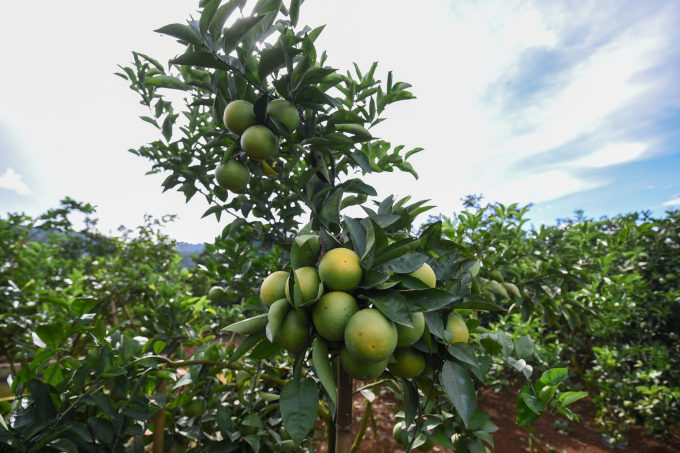
Newly planted oranges in Son La. Photo: Tung Dinh.
According to the Department of Crop Production, Ministry of Agriculture and Rural Development, citrus yields across the country have continued to increase over the years. Particularly in the North, from 2009 to 2019, the growth rate of citrus averaged 10%/year in terms of area (corresponding to 7,300ha/year), 12.5%/year in terms of yield (69,400 tons/year).
With favorable climate and natural conditions, many northern provinces have been promoting the cultivation of citrus in recent years. Nine provinces have orange-growing areas exceeding 1,000 hectares, and 14 provinces have pomelo planting areas exceeding 1,000 hectares.
However, there are discrepencies between citrus production and consumption. Regarding production, research of the Department of Crop Production shows that people still have the habit of growing citrus following the majority. They are trying to plant citrus trees on unsuitable land despite low economic efficiency.
In terms of consumption, oranges and pomelo are the two main crops, grown mostly in the Northern provinces as well as throughout the country, but the main purchasing power comes from the domestic market, serving fresh food needs.
Meanwhile, lemons, with export value up to US$41.6 million in 2019, accounting for 94.4% of the value of exporting citrus fruits, only have a planted area of about 9,600 hectares nationwide, less than 8% of the total area of citrus trees.
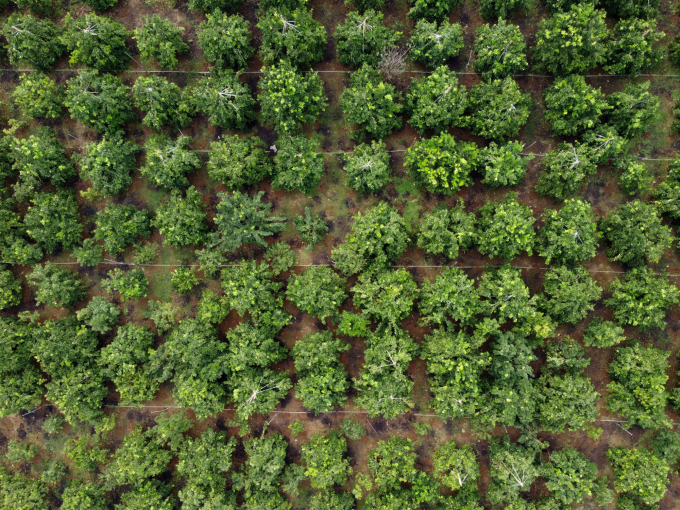
Newly planted oranges in Son La. Photo: Tung Dinh.
Mr. Tran Van Tiep, Director of Hoa Binh Department of Agriculture and Rural Development, pondered: "We need to continue to review citrus production areas, focusing on areas with suitable ecological conditions for intensive farming.
As for scattered planting areas, inappropriate areas such as hills with steep slopes, we will encourage and guide farmers to switch to other crops with higher productivity and efficiency".
Hoa Binh has one of the 10 citrus products certified for geographical indication registration - Cao Phong orange - but the people here are still facing difficulties.
Ms. Tran Thi Hang, a farmer in Thong Nhat commune, Lac Thuy district, said: "We plant oranges, grapefruits and lemons alternately on more than 2 hectares of land. If everything went smooth, we can earn a profit of VND 100 million/ha. But just a few perennial orange trees that die can cost us ten million ".
Professor Nguyen Hong Son, Director of the Vietnam Academy of Agricultural Sciences, apologized before the Conference: "Over the years, Vietnam Academy of Agricultural Sciences has chosen and created citrus varieties with few seeds, but with limited achievements. In addition, seed quality has not been improved, so product quality has not met the needs of countries in the region and around the world. We accept this responsibility to know where we are and how to move on.”

Deputy Minister Le Quoc Doanh visited a booth at the Conference. Photo: Anh Thang.
There are many reasons why citrus trees slowed down after reaching a cultivated area of 256,860 hectares and an output of 2.46 million tons in 2019. One of them is quality.
Deputy Minister of Agriculture and Rural Development Le Quoc Doanh commented: "Currently Vietnam is importing a lot of oranges from Australia and Europe. I think, instead of expanding planting areas, we need to review, adjust and replant or change crops by region. Bring in good seeds, and I believe after only three to four years, if well nourished, the yield will return to the old level."
In addition, the Deputy Minister suggested DARDs to set out citrus planting standards to suit local natural conditions.
As for Hoa Binh, citrus trees are the key to help the province's agriculture change its appearance. As for Bac Giang, citrus trees help break the monoculture of litchi trees.
However, initial success has resulted in rapid increase of planting areas. We are considering to recommend people not to follow the trend, despite unsuitable growing conditions".
Citrus trees need to be fully organically fertilized. Mr. Khac Ngoc Ba, Deputy General Director of Que Lam Group brought out a solution: "We aim to guide farmers to create microbiological preparations at home using available materials. I believe if they can actively create good inputs right at the orchard, the output quality will be guaranteed".
Mr. Bien Van Nga, Chairman of the Board of Directors of Song Gianh Corporation, said: "I hope all levels and branches will promote and mobilize the effects and efficiency of organic fertilizers towards an organic and sustainable agriculture in the future".

Deputy Minister Le Quoc Doanh speaking at the citrus tree conference in Hoa Binh, on the morning of Nov 10. Photo: Anh Thang.
Author: Anh Thang - Van Viet - Quang Dung. Translated by Meagan Phan. Edited by Duc Huy.
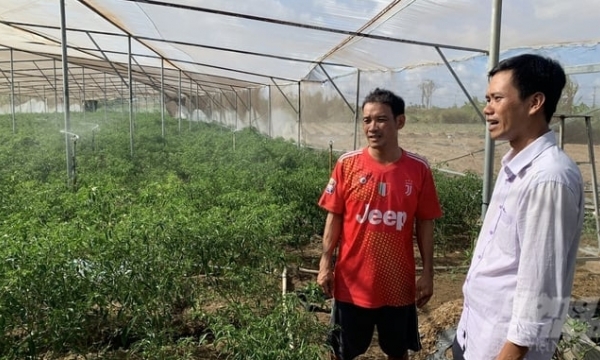
(VAN) The project, sponsored by the European Union, is implemented in Dong Thap, Kien Giang, and Tra Vinh provinces, with a total funding of 4.2 million Euros.
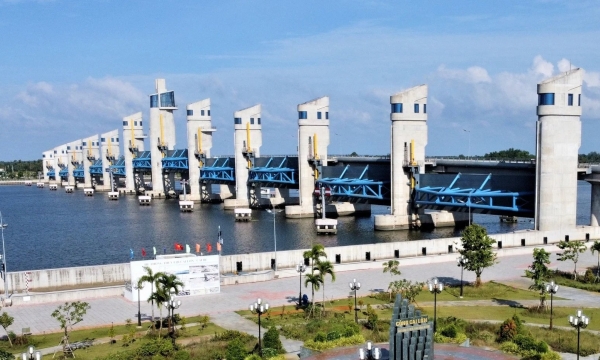
(VAN) In the heart of the Mekong Delta, the Cai Lon and Cai Be sluice gates act as guardians, halting the incursion of salty tides deep into the inland fields and managing freshwater resource distribution.
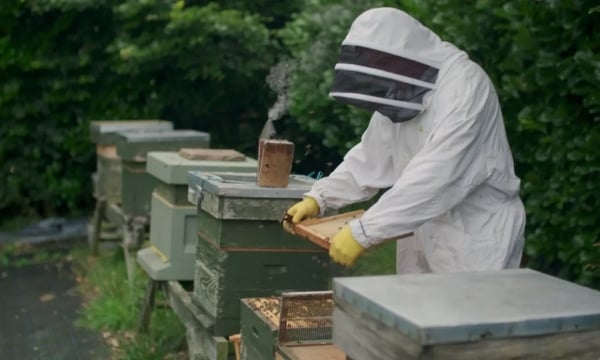
(VAN) The use of IoT, AI, and Blockchain to ensure product quality, streamline the manufacturing process, and distribute goods is a solution for long-term beekeeping development.
/2024/04/25/2756-2-192240_783.jpg)
(VAN) According to the Dong Thap Provincial People's Committee, smart villages are built from farmers' clubs, in line with the trend of developing the digital economy, circular economy, and green economy.
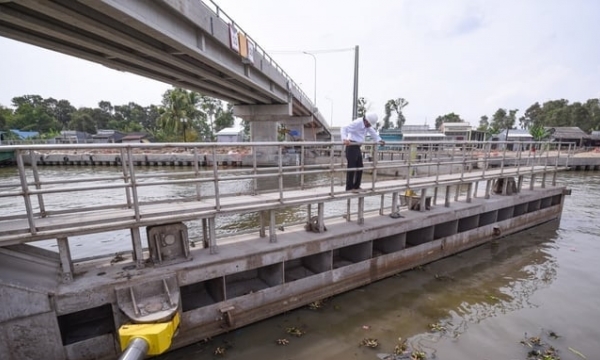
(VAN) Since its inception, the Ninh Quoi sluice gate in Bac Lieu province has significantly benefited the four Mekong Delta provinces during two severe dry seasons.
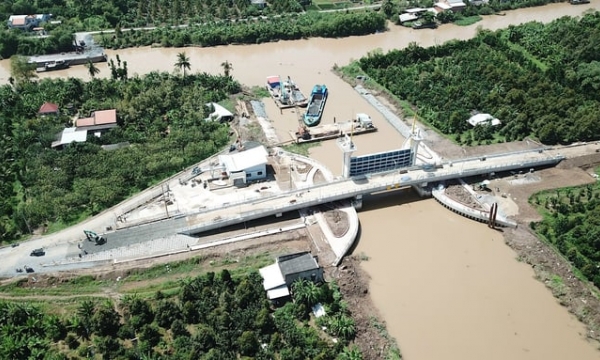
(VAN) During the dry season of 2024, the freshwater and saltwater control sluice projects invested in by the MARD in Ben Tre have significantly contributed to mitigating the impact of natural disasters in the region.
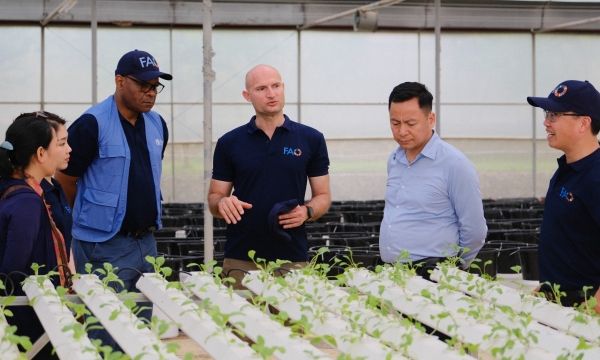
(VAN) The 'Smart Agriculture for the Future Generations' project is aiding 34 households in Moc Chau to renovate and optimize 35,420 square meters of greenhouse space.